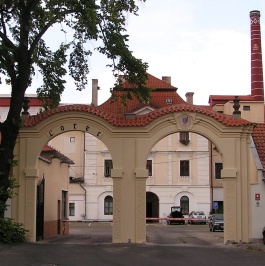
New leadership in Kutná Hora wants to find a use for the brewery and sugar factory
 |
"There is no other way than to offer the buildings for sale and implement interesting investment plans. We must reach out to potential investors and create attractive conditions for them," said Josef Kraus, chairman of the regional organization ANO and future councilor. According to him, the city should definitely not take on the burden of a future investor and operator.
Interested buyers, according to Kraus, should not be deterred by a potentially high price due to the poor condition of the buildings. Starý agrees, suggesting that in the case of the former Teller sugar factory, he might even consider going below the price because significant investment is necessary for the premises. "We need to be a little more modest because those who want too much end up with nothing," he noted.
The likely future deputy mayor Zuzana Moravčíková (ČSSD) also realizes that the renovation of the sugar factory will be costly. She pointed out that it would depend on whether the city or someone else finds a suitable use for the property. "I think a hotel could be established here. We are interested in developing the sports complex at Na Klimešce, and it could be interesting for tourists to visit not only the monuments but also enjoy sports activities. But that is just a dream for now. We need to think about this area comprehensively," she stated. The outgoing leadership wanted to sell the sugar factory to the Belgian development firm ILD but ultimately the deal fell through.
As for the brewery, which was abandoned by Heineken a few years ago, the future deputy mayor can envision operating a small brewery and keeping part of the area reserved for leisure activities. "The location of the brewery is not far from the housing estate, and there is potential for the area to be frequently visited. The situation regarding the sugar factory is more complex," she added.
Starý also wants to attract people to the brewery, hoping that this area "could come to life." It could serve as a multifunctional center for cultural, sporting, entertainment, or relaxation events. "There are many ideas, but it always comes down to finances," Starý noted. He would consider it the best outcome if beer production could be restarted at the site, but he is aware that this would require substantial investment.
Heineken ceased production in Kutná Hora because brewing the Dačický beer at the brewery was not profitable, and moved the operation to Velké Březno. Since then, the city hall has been looking for uses for the site. Various cultural events have been held there, including the popular alternative music festival Creepy Teepee. However, this will no longer be possible, as the building authority prohibited it. According to health officials, the noise from music performances exceeded permitted limits.
Although the municipal elections in Kutná Hora were won by the Šance pro Kutnou Horu group led by current mayor Ivo Šance, a coalition was formed by the second-place Kutnohorská změna with ANO and ČSSD. The KSČM, Alternativa pro Kutnou Horu, and KDU-ČSL also made it into the council.
The English translation is powered by AI tool. Switch to Czech to view the original text source.
0 comments
add comment









